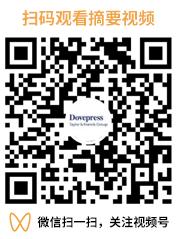108605
论文已发表
注册即可获取德孚的最新动态
IF 收录期刊
- 3.4 Breast Cancer (Dove Med Press)
- 3.2 Clin Epidemiol
- 2.6 Cancer Manag Res
- 2.9 Infect Drug Resist
- 3.7 Clin Interv Aging
- 5.1 Drug Des Dev Ther
- 3.1 Int J Chronic Obstr
- 6.6 Int J Nanomed
- 2.6 Int J Women's Health
- 2.9 Neuropsych Dis Treat
- 2.8 OncoTargets Ther
- 2.0 Patient Prefer Adher
- 2.2 Ther Clin Risk Manag
- 2.5 J Pain Res
- 3.0 Diabet Metab Synd Ob
- 3.2 Psychol Res Behav Ma
- 3.4 Nat Sci Sleep
- 1.8 Pharmgenomics Pers Med
- 2.0 Risk Manag Healthc Policy
- 4.1 J Inflamm Res
- 2.0 Int J Gen Med
- 3.4 J Hepatocell Carcinoma
- 3.0 J Asthma Allergy
- 2.2 Clin Cosmet Investig Dermatol
- 2.4 J Multidiscip Healthc

Knowledge and Practice on Ecopharmacovigilance and Medicine Storage Amongst Medical and Dental Students in Lalitpur, Nepal
Authors Jha N, Shankar PR, Palaian S
Received 17 November 2020
Accepted for publication 8 January 2021
Published 25 February 2021 Volume 2021:14 Pages 793—802
DOI https://doi.org/10.2147/RMHP.S291025
Checked for plagiarism Yes
Review by Single anonymous peer review
Peer reviewer comments 2
Editor who approved publication: Professor Marco Carotenuto
Background: Medicines may remain unused and often get expired. Unused medicines can promote self-medication. Unsafe and improper medicine disposal can cause significant environmental harm. Medical and dental students as future prescribers should be aware of the safe disposal of medicines, ecopharmacovigilance and self-medication. The present study examines knowledge and practice about unused and expired medicines and medicine disposal among undergraduate medical and dental students in Nepal.
Methods: The study was conducted during September 2020 using an online survey form. First to final year undergraduate students provided their consent and signed an integrity pledge electronically. Age, gender, program of study, year of study, whether staying with family or not, method of financing education, and whether they had used any allopathic medicines during the past 6 months were noted. The total knowledge score among different subgroups was compared. The frequency of responses regarding practice items and the free-text comments were also listed. Statistical analysis was performed using Mann–Whitney test and Kruskal–Wallis test.
Results: Altogether 441 of the 668 students (66%) participated. The majority were below 23 years and female. Over 65% had used allopathic medicines during the last 6 months. The median knowledge score was 8 (maximum 10) and was significantly higher among older respondents, females and students in later years of study. Most kept unused medicines at home/hostel till expiry which were disposed of in the household garbage. Over 40% had educated their family members about safe medicine disposal. Knowledge scores were significantly different among subgroups according to respondents’ age, gender and year of study.
Conclusion: Respondents were aware of expiry of medicines and knew methods to safely dispose expired medicines. However, they practiced self-medication, stored medications at home and did not practice the safe disposal of medications. Understanding why respondents did not dispose medicines properly is important.
Keywords: dental students, ecopharmacovigilance, medicine disposal, medical students, Nepal
